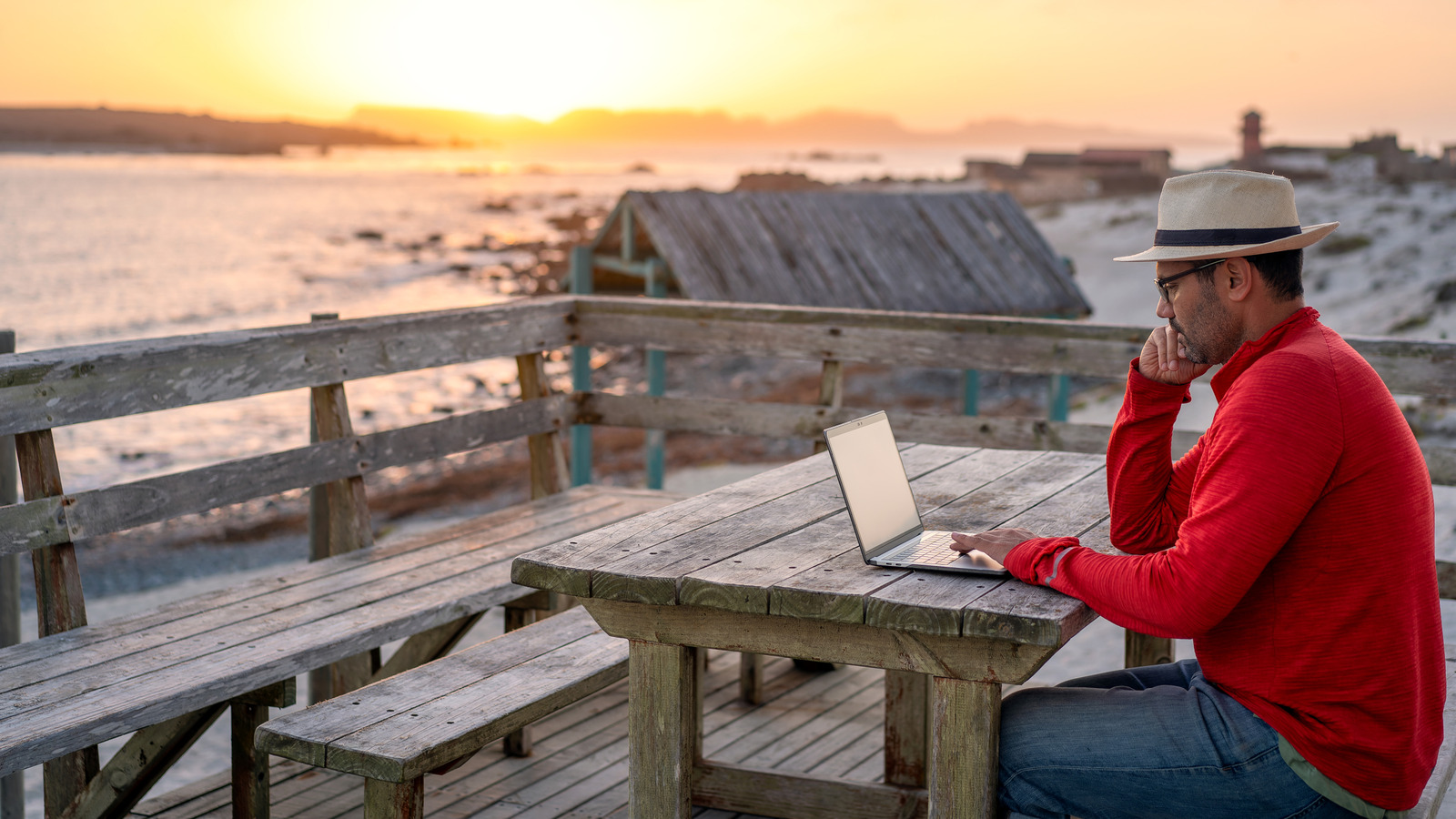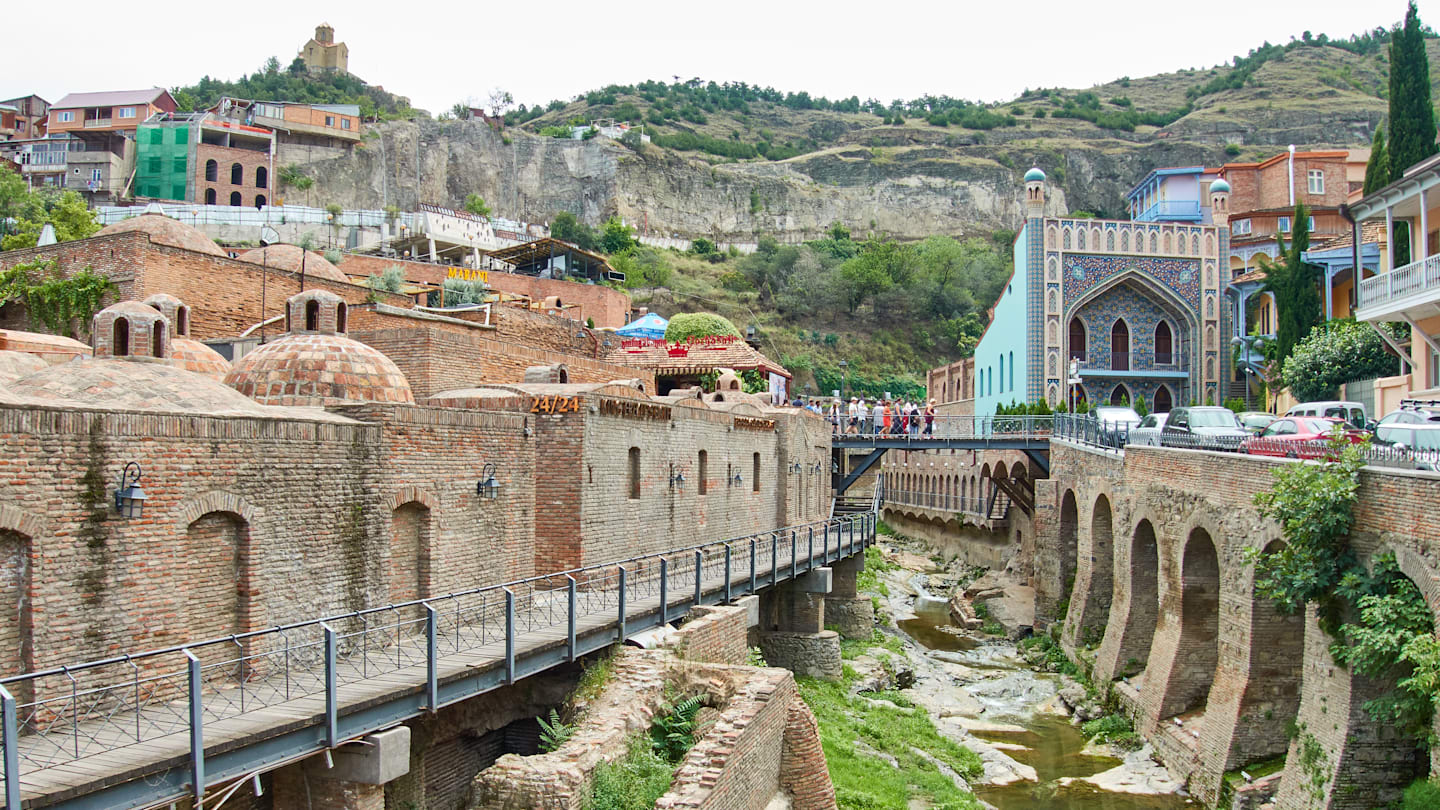#digital-nomads
#digital-nomads
[ follow ]
fromThe South African
4 days agoAre tourists and digital nomads ruining Cape Town for the locals?
Cape Town tourism is a booming industry, and the Mother City needs foreign cash to operate as one of the planet's elite destinations. However, some locals are getting a little annoyed by the oversupply of digital nomads. European tourists are loving Cape Town, and why wouldn't they? When one single Euro gets you R19, an Uber to Boulders Beach to check out the penguins isn't all that pricy.
Travel
fromGamintraveler
2 weeks agoWhat Happened When I Lived Out Of A Carry-On For 12 Months
The idea of living out of a single carry-on bag for an entire year sounds impossible to most people. We're taught from childhood to accumulate more clothes, more products, more backups "just in case." Yet, for thousands of digital nomads and minimalist travelers, fitting their entire life into one small suitcase is not only doable but liberating. It's a lifestyle shift that forces you to prioritize what truly matters and let go of the clutter that weighs you down.
Travel
fromAwardWallet Blog
3 weeks agoGigSky Review: Perfect for Infrequent Travelers and Long-Term Digital Nomads Alike
If you've ever landed in a new country without internet access, you know how frustrating it can be. Although you can often get a local SIM card at the airport or near your hotel, it's probably not what you want to be doing at the end of a long travel day. Plus, if you have a newer iPhone, you might not have a physical SIM card slot at all. In short, it pays to plan ahead.
Gadgets
fromTravel + Leisure
3 weeks agoThis Hidden Central American Surf Town Is Known as 'Bitcoin Beach'-Here's How to Visit
The celebrity clientele says a lot about how far this once-sleepy village has come. El Zonte first attracted local and international surfers in the 1990s, drawn to the consistent waves and tight knit community. (The town was largely spared from lingering violence of a civil war between the military and left-leaning guerrillas that ended in 1992.) And despite El Salvador's struggling economy-the country, which is about the size of New Jersey, has one of the highest poverty rates in Latin America-
Travel
fromAmerican Banker
3 weeks agoDutch neobank Bunq reapplies for a U.S. bank charter
The Amsterdam-based neobank Bunq has reapplied for a U.S. banking charter, two years after withdrawing its previous attempt. The Dutch digital bank, a competitor of the U.K.-based fintech in Europe, announced on Wednesday that it formally filed for a U.S. de novo banking license with the Office of the Comptroller of the Currency. Bunq, a subscription-based service that allows users to manage multiple international accounts and currencies in one application, is aiming to reach European "digital nomads" residing in the United States.
Miscellaneous
fromwww.wanderwithjo.com
2 months agoHow To Benefit From Schengen and Non-Schengen Borders and How They Actually Work
At first, it sounds almost too simple like someone claiming they've solved European immigration with nothing more than a calendar and a backpack. But this little pattern, when used intentionally and legally, becomes one of the most elegant travel strategies in the world. It lets you stay in Europe far longer than any tourist visa seems to allow, all without breaking rules, overstaying, or navigating complicated immigration systems.
Travel
Travel
fromTravel + Leisure
3 weeks agoThis Vibrant Asian City Was Just Named the Most-visited in the World-and No, It's Not in Japan
Bangkok is the world's most visited city in 2025 with 30 million arrivals, driven by affordability, connectivity, infrastructure, cultural attractions, and hospitality growth.
fromwww.wanderwithjo.com
2 months agoThe Little-Known Visa That Lets You Work Remotely Across Europe
It's the Workcation Visa loophole, a gray zone hidden within Europe's short-stay visa framework. It's not an official document, but a subtle legal workaround that allows remote professionals to live and work in Europe for months without technically working in Europe. It's the kind of thing travel consultants whisper about, expats use quietly, and immigration lawyers don't exactly advertise. Here's how it works and why European governments aren't eager to promote it.
Miscellaneous
fromWander With Jo
2 months agoThe Hidden Cost of Moving to Europe No One Explains Until You Feel It
Before you ever enjoy your first croissant, you'll likely find yourself trapped in a bureaucratic labyrinth. Europe's charm - the centuries-old systems, the beautiful order - also applies to paperwork. Every form must be printed, stamped, signed (sometimes in triplicate), and often translated by an officially certified translator. Registering your address? You'll need your lease, a tax number, health insurance proof, and - depending on the country - a "proof of integration" course.
Digital life
fromThe Conversation
1 month agoThe evolution of digital nomadism: from hi-tech hacker spaces to crypto coworking
One of the first modern coworking spaces, C-Base in Berlin, was launched 30 years ago by a group of computer engineers as a "hacker space" in which to share their tech and techniques. Similarly, many of the people we first encountered in our anthropological research into the emerging world of digital nomadism in the mid-2010s were hackers and computer coders.
Digital life
fromwww.spendlifetraveling.com
1 month agoA Workation Retreat in Lloret de Mar, Spain My Honest Review
Lloret has a reputation as a loud, chaotic summer party town. So not exactly the peaceful, inspirational place most digital nomads dream about. But visiting outside high season, which is when the retreats are organized, is an entirely different story. The beaches empty out, the town slows down, and the mix of locals, long-term residents, and off-season explorers creates a surprisingly warm atmosphere.
Travel
fromTravel + Leisure
1 month agoThese Are the Top 10 Digital Nomad Spots in the World, According to Google
In Colombia, travelers who intend to work remotely for a foreign company can apply for a Visa V Digital Nomads program. To apply, travelers must have a valid passport, have either a letter from their employer or a motivational letter explaining their entrepreneurial project, have a bank statement showing at least three months of wages, and have a health insurance plan that is valid in the country.
World news
Digital life
fromwww.wanderwithjo.com
1 month agoHow to Build Multi-City Flights for Less Than a Single Round Trip
Building multi-city flight itineraries can cost less than conventional round-trip tickets, enabling travelers to visit multiple destinations affordably through strategic routing and timing.
fromWorld Wild Schooling
1 month agoThese 12 European Countries Are Perfect for American Digital Nomads
The trend of working remotely as a digital nomad continues to grow across the United States as more and more people try to escape the daily grind of office life. As such, millions of digital nomads in the United States are now looking for somewhere new and exciting to work. You've come to the right place if you're one of those people.
Digital life
Travel
fromFodors Travel Guide
2 months agoThe 10 International Countries Where Everyone Wants to Move, According to Google
Travelers in 2025 increasingly searched for nature-focused destinations, digital-nomad-friendly countries, state parks, and bookstores, prioritizing remote-work and vibe-driven travel.
fromGamintraveler
2 months agoThe Travel Health Insurance Mistake That Could Cost You Thousands
Traveling is one of the most rewarding experiences in life, but it comes with its share of risks-especially when it comes to your health. Whether you're backpacking through Southeast Asia, road-tripping across Europe, or taking a luxury cruise, unexpected medical issues can turn an amazing trip into a nightmare. That's where travel health insurance steps in-offering peace of mind and financial protection when you're far from home.
Health
fromIslands
2 months agoThe Most Affordable City In America For Digital Nomads Is An Underrated Midwest Hub - Islands
When Tsugio Makimoto and David Manners published their book "Digital Nomad" in 1997, they envisioned a future in which technological innovation and accessibility of travel had fostered a nonlocalized global workforce. True to form, as many as 18.1 million Americans described themselves as digital nomads in a recent MBO Partners survey, capitalizing on visa deregulations in countries across the world. But for those who prefer to stay in the U.S., the city of Springfield, Missouri, is raising its hand as an appealing alternative to jet-setting abroad.
Digital life
fromWorld Wild Schooling
2 months agoThese Cheap Residency Options in Latin America Make Moving Abroad Tempting
Cheap residency options in Latin America make the region a top choice for expats seeking an affordable and adventurous lifestyle. The continent offers a variety of residency pathways, making it ideal for retirees, remote workers, and property investors. Imagine living in Mexico's cultural hubs, enjoying Colombia's low cost of living, or experiencing the natural beauty of Costa Rica-all while benefiting from accessible residency programs. These countries combine affordable living costs with stunning scenery and welcoming communities.
Travel
fromForbes
2 months agoDigital Nomad Visas-5 Countries With The Best Work-Life Balance
Everyone yearns for a good work-life balance, and some people love the idea of exploring a little more of the world while working remotely. Some countries are set up for both-offering accessible digital nomad visas and great infrastructure, ranking highly in several recent expert reports across both categories. What's more, these five countries-Australia, Canada, Denmark, Finland, and Norway-have also recently topped the best places to travel in 2026 lists. Here's why.
Digital life
Miscellaneous
fromwww.wanderwithjo.com
3 months agoThese Countries Want You to Move There and They'll Help You Do It
Many countries are actively recruiting foreigners by simplifying visas, offering tax incentives, and other benefits to attract skilled workers, entrepreneurs, retirees, and digital nomads.
[ Load more ]





















:max_bytes(150000):strip_icc()/TAL-lead-image-FLORIANOPOLISDOTYBRAZIL-adb09834e71e44339fec43d8ce9a5162.jpg)


:max_bytes(150000):strip_icc()/TAL-springfield-missouri-DIGNOMADMO1025-b62850e9e26043e69a044aca418703d5.jpg)
